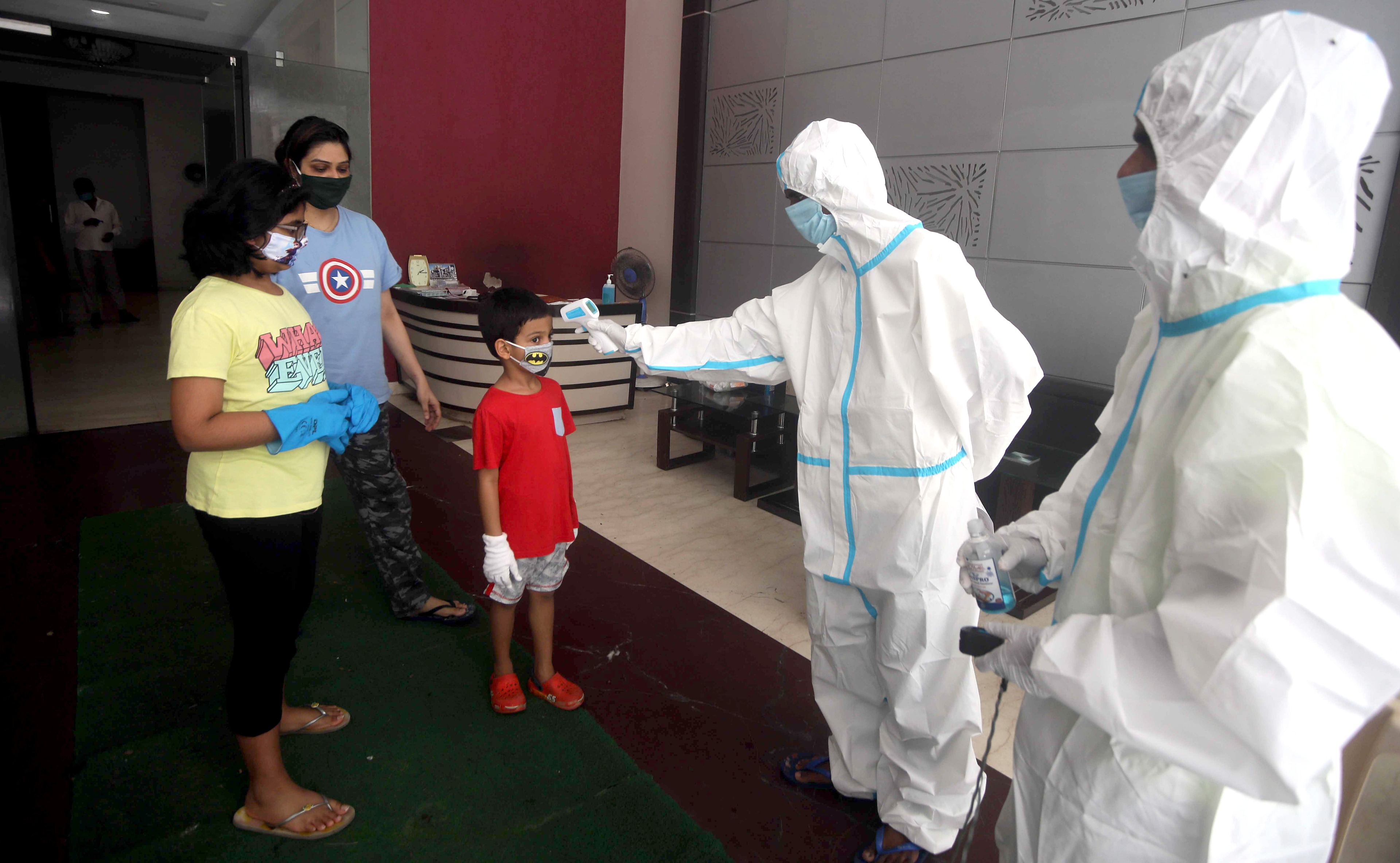India is seeing record spike in daily Covid-19 cases and the virus is spreading deep into the hinterland where social distancing is a herculean task. "It is going to be a tough few months ahead for the country, but things will get better over time," eminent epidemiologist and the director of US-based Centre for Disease Dynamics, Economics and Policy, Dr Ramanan Laxminarayan said. In an interview with Business Standard, he also said there is clearly community transmission in India and the rampant spread of the virus indicates that we are gradually moving towards herd immunity.
Six months into the Covid-19 pandemic, has India done enough so far to contain the outbreak?
The government has done some things well including on early leadership, and communicating the importance of a strong response. Testing has lagged behind and there has been some confusion around the science. The scientific leadership during this time has been confused between unrealistic vaccine deadlines, recommendations on HCQ that are not validated with global data and the lack of much serious scientific research on Covid coming out of India. But overall, I would say that India has done reasonably well.
India is seeing over 45,000 daily cases for the past three days. What would be the peak scenario like and when do you see it coming?
It is really hard to get a correct picture because data are not being shared by the government. Without having the raw data on testing and outcomes, we can only guess. The summary figures seem to indicate a peaking epidemic in Delhi, Maharashtra and Tamil Nadu, a growing epidemic in some other places and a largely hidden epidemic in the largest states of UP, Bihar and Madhya Pradesh. States that are testing more are both doing better at containment and are also reporting more cases. I would consider case reporting to be an indicator of the quality of the health system. And states that are hiding cases and deaths clearly have weak health systems and inadequate testing.
ALSO READ: Coronavirus LIVE
Do you think our health system is equipped to tackle peak Covid surge?
The first three major cities Delhi, Maharashtra and Tamil Nadu to be hit by Covid have not fared well and the next set of places to experience Covid surges are likely to be much less equipped with medical facilities and professionals. We have to hope for the best.
The govt has so far denied community transmission even as cases crossed 1 million. However Kerala CM has acknowledged it in parts of Thiruvananthapuram. What is your view?
Let’s not focus on that term which has been defined arbitrarily by some. Clearly there is community transmission, as defined by any international standard, since March.
India's fatality rate is now below 2.5 per cent. How do you see this figure?
India needs to test intelligently. The switch to the rapid antigen test which is far less sensitive has likely resulted in a lower test positivity rate and therefore a less fatality rate. This also gives the impression that things are under control. Ramping up RT-PCR is not possible beyond a point. However, a combination of testing for comorbidities, severity markers, antigens, antibodies and RT-PCR in a systematic manner could help. But ICMR’s guidance does not even refer to differential testing for people with higher risk factors. The scientific guidance is lagging behind the epidemic.
A sero-survey has found 23 per cent of Delhi's population has been infected with coronavirus and there is a decline in the daily number of cases in the city. How do you see both these trends?
The virus was reaching a natural peak because Delhi’s population is not that high compared to Tamil Nadu and Maharashtra. Again, I reiterate my earlier point that the switch to the rapid antigen test has likely resulted in a lower positivity rate. The currently available rapid antigen tests made by SD Biosensor that have high false negatives. I believe that better antigen tests will be forthcoming with better performance. Coming back to Delhi, the city has actually done quite poorly. It has been saved by its smaller population and the disease will soon run its course in this state.
Are we moving towards herd immunity and if so, how does it work?
Herd immunity is when a certain percentage of the population has been infected and is immune and consequently not everyone has to be infected. The rampant spread of the virus certainly indicates that far more people have been infected than RT-PCR testing has showed. We are certainly moving in the direction of herd immunity, which we have been talking about for a while.
Oxford vaccine candidate has shown promise in trails. Are you hopeful?
I am always hopeful but we still have a long way to go. It is too early to tell if this is exactly the vaccine that will turn out to be useful for our purposes.
